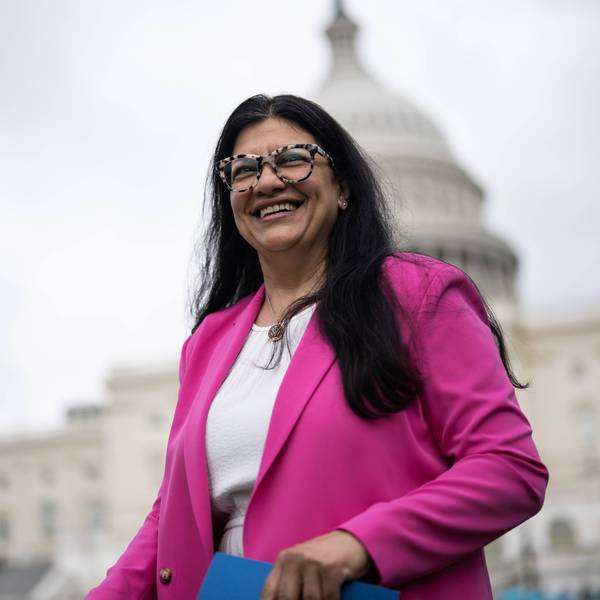The House Financial Services Committee on Thursday held a hearing about one of the main ways the one percent keeps money in the hands of the richest Americans--stock buybacks--winning praise from progressives for shining a light on the practice.
"It's time for Congress to listen to how our economy is rigged against working people," advocacy group United for Respect said in a tweet.
The hearing, chaired by Rep. Maxine Waters (D-Calif.), featured testimony from Janie Grice, a Walmart worker and United for Respect member. Grice told lawmakers that she was upset to find out the company used $20 billion in profits for stock buybacks instead of giving that money to employees.
"I don't mind investors making profits," said Grice. "I do mind when associates like me, who have been putting the work in, day after day and year after year, don't get to share in those profits."
According to University of Massachusetts economics professor Lenore Palladino, stock buybacks represent yet another example of how inequality works in the U.S.
"Gains from share selling flow disproportionately to a small group of wealthy households," said Palladino.
Rep. Carolyn Maloney (D-N.Y.) noted that stock buybacks can also be used to manipulate valuation for profit.
"Executives can use a buyback program to boost the company's stock price, right before selling their own stock at these artificially inflated prices," said Maloney.
In a statement, Patriotic Millionaires chair Morris Pearl said the policy has negative long-term implications for companies and employees.
"The plain truth is that spending corporate profits on raising worker wages and investing in new jobs, instead of spending it on stock buybacks that only serve to make rich investors even richer, will actually help all of those business people and investors make more money simply because workers will have more money to spend," said Morris.
"Spending billions on stock buybacks, instead of reinvesting that money where it's needed most, is a shortsighted, unsustainable decision to enrich shareholders," Morris added.




